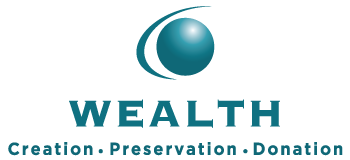By Peter Nicholson
In the year 2022, it is fair to say that technology is firmly embedded in our day-to-day lives.
From the moment we wake up, to the time we set our alarm before going to bed, technology makes our personal and professional lives possible.
But where did all of this technology come from?
Yes, the products themselves came from the creativity and imagination of the human mind – from individuals and companies, such as those here at the North Kanata Technology Park.
But what about the minerals that actually make up our computers, electric cars, cell phones, and everything else in between?

The fact is, the average Canadian simply wants his or her technology to work. We don’t give much thought to how we are able to build these products and bring innovation to life.
This reality, however, might be poised for change.
On April 7th, Canada rang the alarm bell when it announced its first ever Critical Minerals Strategy – a new set of laws, regulations and tax incentives to help boost the supply of these minerals domestically, while also kick-starting our global supply chain.
“The world economy is going green,” Chrystia Freeland, Deputy Prime Minister and Minister of Finance, said at the last Federal Budget. “Canada can be in the vanguard, or we can be left behind.”
Think copper for circuit boards and electronics. Think titanium for solar panels and aerospace technology, or cobalt for electric car batteries and wind turbines.

In total, Canada identified 31 minerals that are deemed “critical” to this future economy, not to mention our national security.
The good news is we have a treasure chest of riches in this country. Many people don’t know it, but Canada is a world leader in mining – and we have been for a very long time. Mining directly and indirectly employs more than 700,000 Canadians every year, while serving as the number one employer of Indigenous Peoples. In all, the sector contributes over $100 billion to our annual GDP.
Did you know 45% of all players in the NHL are Canadian? Well, 65% of public mining companies in the world are Canadian – we’re that good at it.
Why do I know so much about mining? Since 2006, my company WCPD Inc (an acronym for Wealth, Creation, Preservation & Donation) has specialized charity flow-through shares. You may have heard about flow-through shares before, which makes sense, considering they have been around since 1954 (three years older than your RRSP).
In essence, flow-through shares are a financial instrument used by the government to raise capital for crucial industries, through a tax deduction equal to the amount invested.
And the most successful and well known form of flow-through shares? You guessed it – flow-through shares for junior mining companies in Canada.
For nearly 70 years, our government has understood how important it is to provide seed funding to junior companies so they can provide jobs, stimulate the economy, and hopefully, find that next big deposit of minerals.
This simple fact gave birth to a financial structure that has not only generated billions in financings for these junior mining companies, but more than a $1 billion in giving to registered Canadian charities.
Allow me to explain.
When a junior mining company plans to drill, our clients purchase these flow-through shares for the 100% tax deduction and donate them to charities of their choice. The shares are then sold to a pre-arranged liquidity provider at a discount a moment later, eliminating any stock market risk.
The charity receives the cash proceeds, but issues a donation tax receipt to the donor, generating a second 100% tax deduction.

In addition, some clients choose to keep the cash proceeds from the liquidity provider for themselves, generating at least a 25% rate of return via tax savings with no stock market risk.
When you combine these two tax policies, both older than your RRSP, our clients have been able to reduce their taxes, and if they wish to, give more efficiently to charities of their choice.
It’s a tried and true model – the GIC of tax deduction, I like to say – with 9 advanced tax rulings and over 6,000 WCPD client tax filings, with no CRA filing issues.
But of the thousands of clients I’ve met over the years, how many do you think cared about mining?
The answer is almost none, except for our mining executives, who are high-taxed clients and buy flow-throughs.
However, thanks to critical minerals, it’s an opportunity for mining to shine. As part of their Critical Minerals Strategy, the government has introduced an enhanced tax credit. Explorations involving critical minerals, such as copper, nickel, lithium and cobalt, will now kick out a 30% tax credit (equal to a 60% tax deduction), on top of our 100% tax deductions from the flow-through structure.
Already, our firm has done three of these deals involving critical minerals.
According to a recent report by the World Bank, the production of critical minerals could increase nearly 500% in the years to come to meet the surging demand for clean energy.
For the technology sector, the stakes are high. In September 2021, at a mining conference Tesla CEO Elon Musk famously quipped: “Please mine more nickel. Telsa will give you a giant contract for a long period of time if you can mine nickel efficiently and in an environmentally sensitive way.”
Suddenly, mining no longer feels so far away. From what we use in our day-to-day lives, to the decision to buy flow-through shares, Canadian mining is something we can all feel invested in.

Wealth Creation Preservation & Donation Inc. by Ashley Fraser
For decades, Peter Nicholson has been a recognized leader in Canadian tax assisted investments, with a specialized focus on philanthropic tax planning and tax reduction. Through his work with countless donors, foundations and institutions and boards, he has helped generate in excess of $250 million for client donations. To learn more, contact him at peter.nicholson@wcpd.com
